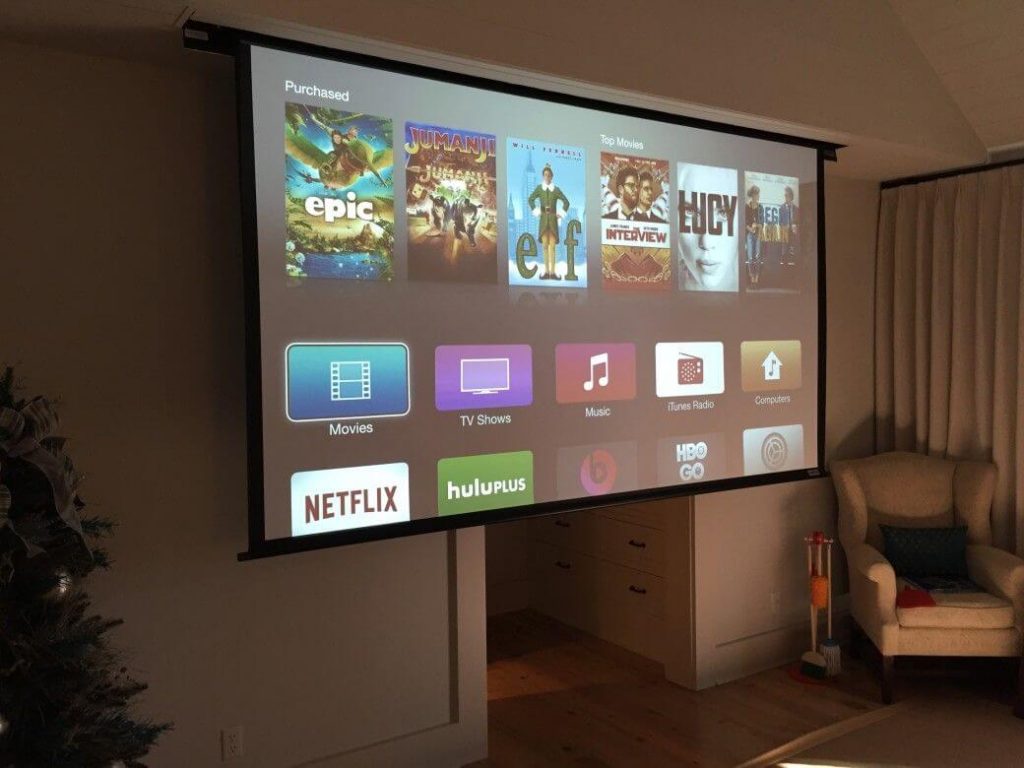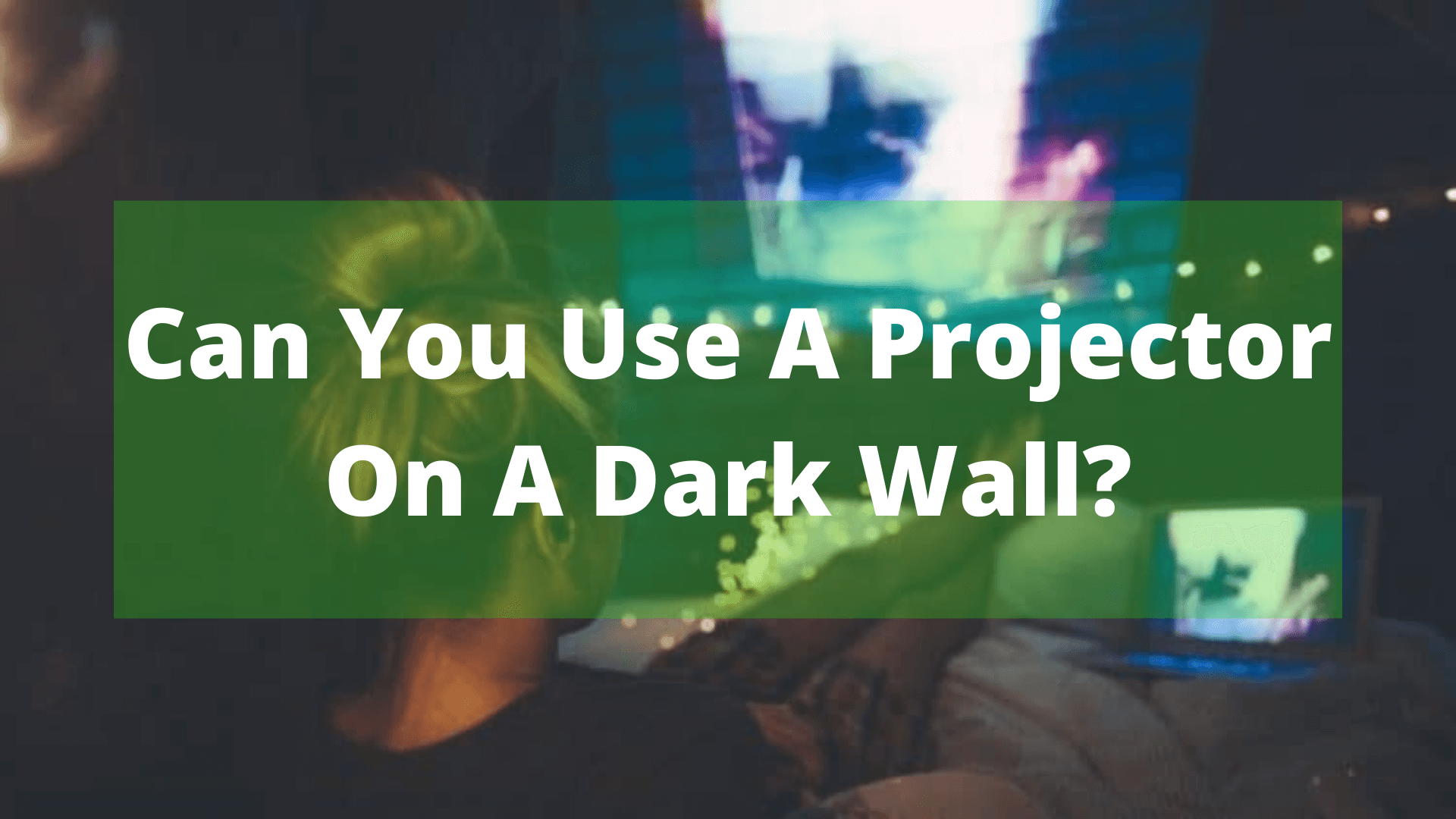Can You Use A Projector On A Dark Wall? In November 19, 2024

A projector can be a great addition to your dark wall. By adding a projector to your dark wall, you can create a focal point in your room that can be used for entertainment or to add light to your room.
A projector can also be a great way to save space in your room by eliminating the need for a TV. If you are looking for a way to add a little bit of flair to your dark wall, a projector is a great option. They are perfect for presentations, movies, or gaming. Projectors can be found at most electronics stores.
Can You Use A Projector On A Dark Wall?
You can use a projector on a dark wall, but if you’re going to use a projector indoors or in a room with ambient light, you may want to consider using a white screen.
This is because the contrast between the white screen and the projected image will be greater, making the image easier to see.
Additionally, using a white screen will help to reflect some of the light towards the projector, which can help to improve the overall brightness of the image.
Why Use a Projector on Colored Walls?
There are many reasons why one might choose to use a projector on colored walls rather than a traditional whiteboard or chalkboard. One reason is that colored walls can help hide imperfections in the projection surface.
If there are any wrinkles or bumps in the wall, they will be much less noticeable against a colored background. Additionally, colored walls can help to reduce glare and improve contrast, making the projection easier to see.
Another reason to use a projector on colored walls is that it can help to create a more immersive and engaging environment.
Colored walls can help create a sense of depth and make the project seem more lifelike. Additionally, colored walls can help to reduce distractions and make it easier for viewers to focus.
Is it better to project on a wall or screen?

When deciding whether to project on a wall or screen. The first is the quality of the image. A bare wall will not provide the same clarity and detail as a screen.
The second is the size of the projection. A screen can be sized to fit the desired projection, whereas a wall may not be able to accommodate a large projection. The third is the environment.
A screen can be placed in a controlled environment, such as a darkened room, whereas a wall may be subject to ambient light and other distractions.
Ultimately, whether to project on a wall or screen depends on the specific situation and what is most important: quality, size, or environment.
Will a projector work on a dark blue wall?
It is possible to use a projector on a dark blue wall. Black or dark blue surfaces do not reflect light, making them an ideal substitute for projector screens. If the blue is too light, it might reflect some of the light from the projector and cause a washout effect.
However, it is important to consider the other factors that can affect the quality of the projection. The color of the wall may not be the only factor determining the projection’s quality.
The projector itself, the size of the room, and the type of projector may also affect the quality of the projection. Additionally, the blue wall may absorb some of the light from the projector, which could result in a dimmer image.
Can I project on a grey wall?

A projector can work on a grey or black wall, depending on the level of ambient light in the viewing area. If there is enough ambient light, the projector will be able to project the image onto the wall without any issues.
This is because dark colors tend to absorb light rather than reflect it, which can help to reduce glare and make the projection clear.
Additionally, dark colors can help to reduce the visibility of the projector itself, which can be helpful if you’re trying to create a more immersive experience.
A grey or black wall will absorb more heat than a white wall, so the projector may run hotter and require more ventilation.
Is a projector better on a white or black wall?
Assuming you are asking about projection screens, the answer is that it depends on the projector. A projector will typically provide a sharper image and better black levels on a black screen than on a white screen.
This is because black screens absorb light more effectively than white screens, resulting in less light reflected on the projector.
This can be especially beneficial in rooms with high ambient light levels, as it can help reduce the amount of light reflected from the screen.
However, a white screen will still provide a good quality image and maybe a better option for those looking to save money or working in a space with limited lighting.
Ultimately, whether to use a white or black screen with your projector will come down to personal preference and the specific needs of your situation.
Conclusion
Yes, you can use a projector on a dark wall. However, there are a few things you should keep in mind to get the best results.
- First, make sure the projector is positioned correctly so that the image is as large and clear as possible.
- Second, adjust the focus to ensure that the image is as sharp as possible.
- Finally, experiment with the settings to find the perfect balance of brightness and contrast for your needs.







